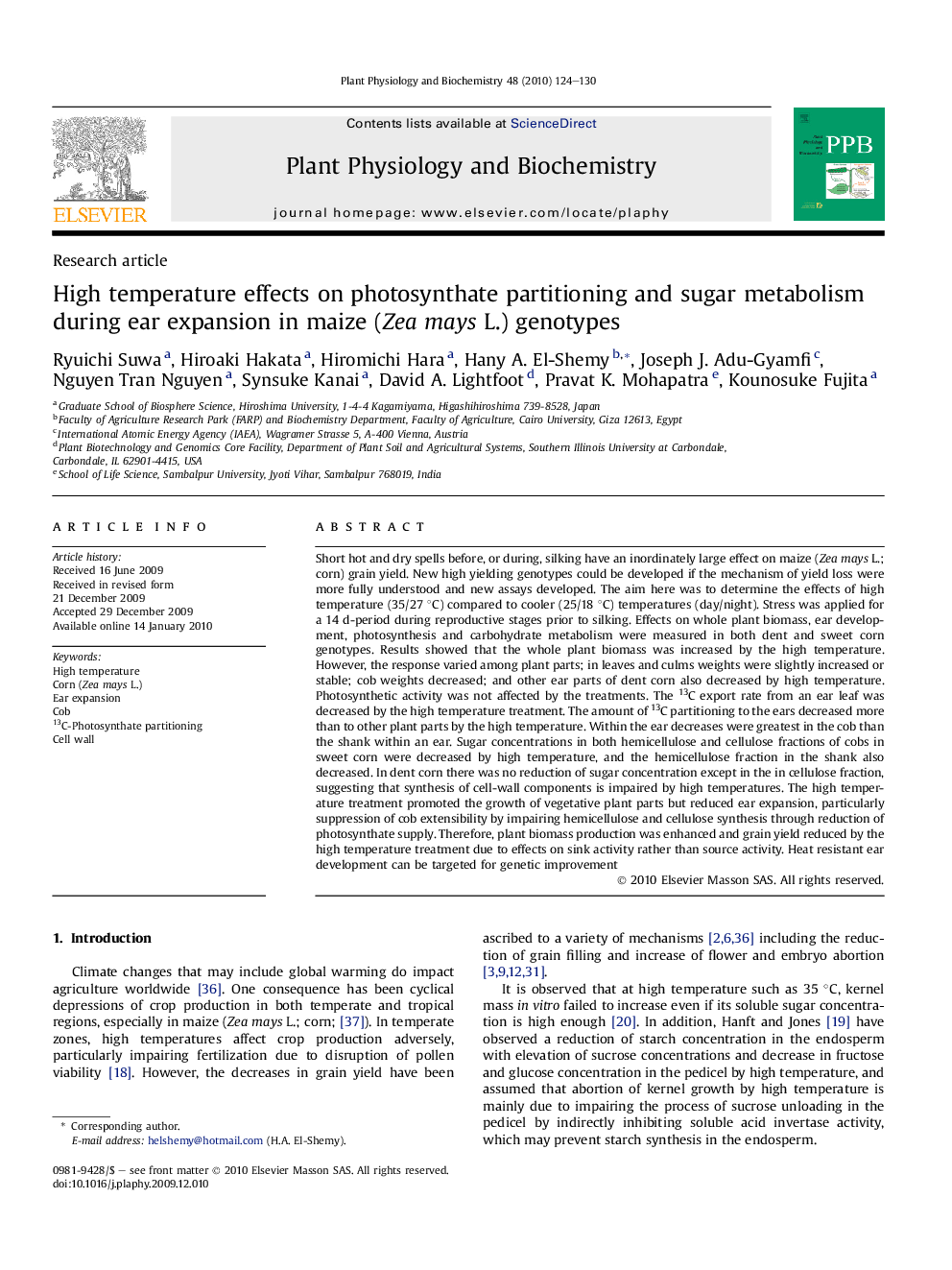| کد مقاله | کد نشریه | سال انتشار | مقاله انگلیسی | نسخه تمام متن |
|---|---|---|---|---|
| 2015183 | 1541973 | 2010 | 7 صفحه PDF | دانلود رایگان |

Short hot and dry spells before, or during, silking have an inordinately large effect on maize (Zea mays L.; corn) grain yield. New high yielding genotypes could be developed if the mechanism of yield loss were more fully understood and new assays developed. The aim here was to determine the effects of high temperature (35/27 °C) compared to cooler (25/18 °C) temperatures (day/night). Stress was applied for a 14 d-period during reproductive stages prior to silking. Effects on whole plant biomass, ear development, photosynthesis and carbohydrate metabolism were measured in both dent and sweet corn genotypes. Results showed that the whole plant biomass was increased by the high temperature. However, the response varied among plant parts; in leaves and culms weights were slightly increased or stable; cob weights decreased; and other ear parts of dent corn also decreased by high temperature. Photosynthetic activity was not affected by the treatments. The 13C export rate from an ear leaf was decreased by the high temperature treatment. The amount of 13C partitioning to the ears decreased more than to other plant parts by the high temperature. Within the ear decreases were greatest in the cob than the shank within an ear. Sugar concentrations in both hemicellulose and cellulose fractions of cobs in sweet corn were decreased by high temperature, and the hemicellulose fraction in the shank also decreased. In dent corn there was no reduction of sugar concentration except in the in cellulose fraction, suggesting that synthesis of cell-wall components is impaired by high temperatures. The high temperature treatment promoted the growth of vegetative plant parts but reduced ear expansion, particularly suppression of cob extensibility by impairing hemicellulose and cellulose synthesis through reduction of photosynthate supply. Therefore, plant biomass production was enhanced and grain yield reduced by the high temperature treatment due to effects on sink activity rather than source activity. Heat resistant ear development can be targeted for genetic improvement
Journal: Plant Physiology and Biochemistry - Volume 48, Issues 2–3, February–March 2010, Pages 124–130